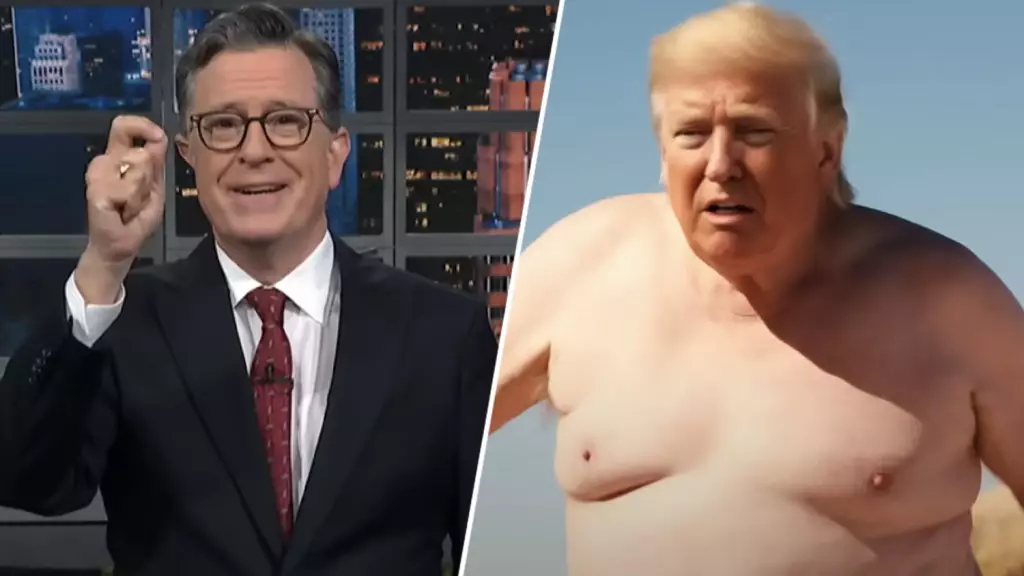In an era where political correctness and corporate interests often seem to silence dissent, South Park’s latest season exemplifies the unyielding power of satire to challenge authority and provoke critical reflection. The creators, Trey Parker and Matt Stone, have once again demonstrated that comedy remains a potent tool for exposing societal absurdities and holding the powerful accountable. Their recent episode, which targets Donald Trump and the broader implications of AI deregulation, is not just a parody but a deliberate act of defiance against censorship and complacency. At a time when corporations like Paramount are navigating a minefield of political sensitivities, South Park chooses to push boundaries, daring viewers to confront uncomfortable truths with humor that is both biting and insightful.
Breaking the Silence: The Resilience of Artistic Freedom
The controversy surrounding the episode highlights a stark reality: creative expression is increasingly under siege. Paramount’s recent settlement with Trump and the subsequent fallout, including the cancellation of shows like The Late Show, symbolize a troubling trend where financial and political pressures threaten to silence critical voices. South Park, through its unapologetic portrayal of Trump’s nude deepfake and the satire on AI de-regulation, asserts that art must serve as a mirror—not a sanitized reflection—of society’s realities. The creators’ decision to incorporate provocative imagery and controversial messages underscores their belief in the transformative power of satire as a form of resistance. Their work challenges the sanitized narratives often propagated by mainstream outlets and urges audiences to question authority figures and the systems that enable them.
The Role of Humor in Political Discourse
What makes South Park’s latest salvo particularly impactful is its strategic use of humor as a vehicle for political commentary. The episode’s finale, which features exaggerated caricatures and a satirical PSA about Trump, not only elicits laughter but also prompts viewers to scrutinize the hypocrisies and contradictions within leadership and media landscapes. Stephen Colbert’s remarks on his canceled show further exemplify how comedy figures are rallying around this ethos of defiance. Colbert’s quip about AI and the importance of free expression encapsulates a broader debate about technological censorship and the importance of protecting creative liberties. His promotion of South Park’s content via QR code signifies a conscious effort to circumvent traditional channels and leverage modern technology as a means of resistance.
The Cultural Significance of Pushing Limits
The episode’s unapologetic tone signals a shift in cultural discourse—one that refuses to back down in the face of financial pressures or political intimidation. By depicting Trump in absurd situations, such as him obsessing over his own manhood and attempting to seduce Satan, the creators are not merely mocking a politician but challenging the sanctity of power itself. Their willingness to feature controversial scenes, like the explicit deepfake PSA, underscores an essential truth: societal progress often requires uncomfortable truths to be voiced loudly and unapologetically. This act of defiance is a reminder that satire, when wielded bravely, can serve as a catalyst for social awakening and a safeguard against authoritarian tendencies.
The Future of Resistance in Entertainment
As corporate interests and political figures clash with artistic integrity, the landscape of entertainment is poised at a crossroads. The resilience shown by South Park creators exemplifies what is possible when creators refuse to capitulate to the prevailing tides of censorship. Their work demonstrates that media can be a battleground for free expression, encouraging audiences to question narratives and resist manipulation. While critics may see such content as offensive or destabilizing, it fundamentally reaffirms the importance of wholehearted honesty in cultural conversations. The current climate, fraught with political vendettas and financial stakes, necessitates a new wave of bold artistic voices willing to challenge the status quo—voices that South Park has proven are still essential for society’s growth and accountability.
—
South Park’s fearless stance serves as a rallying cry for creators and audiences alike: it is through unflinching satire that true societal change can be sparked. Rather than retreating into comfort zones, artists and viewers must embrace the discomfort that comes with confronting power head-on. Only then can we ensure that free expression remains a vital cornerstone of democracy, resilience, and cultural evolution.
